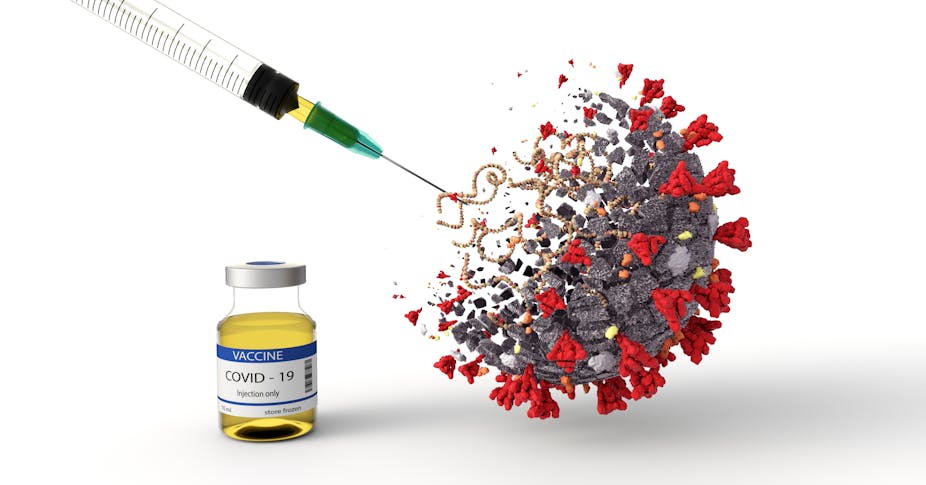Vaccination will be hugely important in controlling future waves of COVID-19. But for it to work, we will need high levels of public acceptance of a vaccine, if and when it eventually becomes available.
In recent years, vaccination rates have fallen across the world, and public confidence in vaccines is inconsistent. Indeed, the World Health Organization last year included vaccine hesitancy – the reluctance or refusal to vaccinate despite availability – as one of the top ten threats to global health.
So while research is ongoing to identify effective vaccines, we also need to find out what proportion of the public would actually accept one, and what factors might shape this decision.
Our recent study, carried out in April during national lockdown, found that most high-risk individuals intend to take a future vaccine. In a sample of 527 older adults (aged 65 and over) and people with chronic respiratory illnesses, 86% indicated that they would. And although this figure is very promising, it also shows that a sizeable proportion of people in a high-risk group are undecided or would refuse to get vaccinated.
Our survey also showed that the pandemic may have a positive impact on general vaccination uptake. Of our participants, 38% said it would make them more likely to get the annual flu vaccination, and 51% of the older adults who had not previously been vaccinated against pneumonia said they would now be more likely to do so.
We also wanted to find out what factors would influence decisions about whether or not to receive a vaccine. Health concerns – both personal and for the wider community – were the key motivations for people who see vaccination as a means to protecting against the effects of the virus.
The key barrier to vaccination was a concern about safety, with participants worried that a vaccine is being rushed into development. This fear was previously seen during the 2009 “swine flu” pandemic, where not being vaccinated was linked to a belief that the vaccine had not been properly tested. Most countries reported sub-optimal uptake rates for that vaccination.
For vaccination to be effective in stopping COVID-19 and eliminating the need for social distancing, we will need high levels of both vaccine uptake and vaccine efficacy. If not enough people get the vaccine we will all be affected as the virus will still be able to spread, requiring continued restrictions.

One study suggests that if 75% of the population was vaccinated against COVID-19 then the vaccine would need to have an effectiveness of 80% to “extinguish an ongoing epidemic”. If uptake rates were any lower than this, the threshold for vaccine efficacy would need to be even higher to provide community protection.
Global variance
A recent global survey has shown that of 20,000 adults from 27 different countries, 74% said they would accept a COVID-19 vaccine. It also found a large variation in acceptance levels across countries, ranging from 97% in China to 54% in Russia.
Acceptance levels are apparently lower in particular groups. For example, in France research showed it was lower among people with low income, while in Australia it was associated with lower education levels, and in the US it was lower in unemployed participants and Black American populations.
These studies highlight the need for governments and health officials to think carefully about how to ask the public to make yet another behavioural change in the context of this pandemic, and accept a COVID-19 vaccine when it becomes available. The range of interventions should offer a variety of educational and persuasive or enabling approaches to different groups of people.
Our findings suggest that the best approach would be to focus on the beneficial consequences of vaccinating for the individual, as well as their family and wider community. The focus should not only be on the beneficial health consequences of vaccinating, but also the beneficial emotional consequences, through reduced fear and anxiety.
Read more: Coronavirus vaccine: what we know so far – a comprehensive guide by academic experts
It is therefore important to focus now on the content of the public health communications that will shortly be needed. Our study provides a starting point for understanding the key barriers and enablers to vaccine acceptance but more research is required.
We need to address this key gap and ensure that when viable vaccines do become available, we are prepared and ready to support the whole population in gaining maximum benefit from them.

